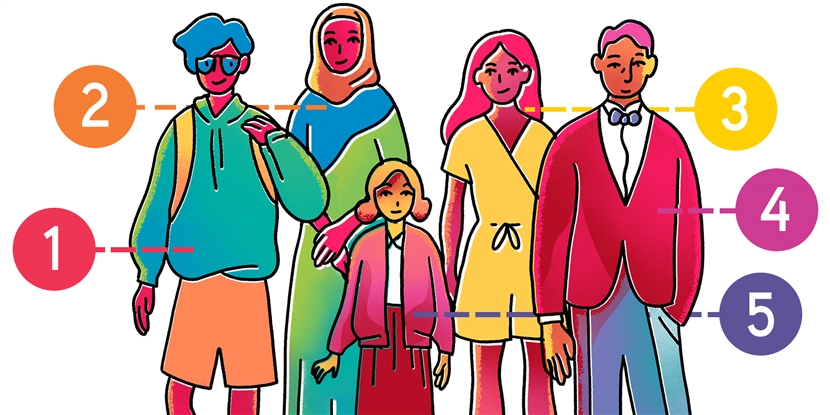Angela Flakker, WHP Teacher
New Jersey, USA
It’s time to admit the truth: Teaching a world history course is challenging! There is so much history to analyze that it can become extremely overwhelming for both students and teachers. World History Project (WHP) takes a unique and cohesive approach by using inquiry problems, frames, and a variety of scales. These frames (communities, networks, and production and distribution) and scales (spatial and temporal) help students make sense of 13.82 billion years of history. WHP provides a variety of skills-based activities that are spiraled into the curriculum: reading, writing, claim testing, causation, contextualization, sourcing, and more. Here WHP teacher Angela Flakker gives you her take on the top five reasons to use WHP in your classroom.
1. Historical Thinking Practices
The World History Project course teaches students to use skills and reasoning practices like scale, causation, claim testing, and contextualization. Most history teachers attempt to teach these practices, but it’s often difficult to revisit them when there are so many other things to juggle. In the first unit of the course, WHP introduces these important practices in engaging and relatable ways. Then, each unit revisits, scaffolds, and applies these thinking practices to help students fully understand and evaluate the content they’re learning. Although these practices are essential in a history course, mastering them will benefit students in their daily lives, as well!
2. The Importance of Narrative
At the very start of the course, WHP emphasizes that there is not “one true history.” Rather, history comprises many narratives, from different perspectives. Understanding that there are varied narratives, both in history and in life, is an extremely important lesson for students to grasp. Throughout the course, students use sourcing techniques to evaluate evidence, test claims, and make decisions about who and what to believe, skills that will be useful outside of the history classroom as well.
3. Community
WHP offers support that is simply not found in other curricula. It’s fitting that one of the course frames is communities, because community is important to the folks who developed the course! All over the country, teachers are piloting the World History Project materials in schools with differing student populations, state standards, and academic levels. But we never have to feel alone. Our online community provides a venue for asking questions, sharing ideas, or simply figuring out how to facilitate a lesson for tomorrow. WHP teachers are true collective learners – we share knowledge and preserve it!
4. Flexibility to Make It Your Own
WHP offers outlines, objectives, and historical problems for students to grapple with. Each lesson has a purpose, process, and materials that teachers can use. There are videos, readings, and activities galore. However, it’s so important to remember that WHP teachers have total control! Teachers know their students and what will work for them. WHP teachers can use lessons exactly as is, or modify and scaffold them as needed.
5. Aha! Moments
I can attest that WHP students reach true “aha” moments! Developing skills is so important, but they’re easy to overlook when we’re focused on content. With WHP, students are amazed at the ways in which lives from different period in history compare to their lives today. Students enjoy WHP’s big picture moments, moments that can be lost when units are taught in isolation. In my classroom, students have reflected that they have a new view about humans. Teaching WHP is truly a unique experience. Attempting to embed historical thinking practices in a meaningful way can be a struggle, but WHP makes it easier. The course deliberately spirals historical thinking practices that are often overlooked. WHP students learn that there are big problems throughout global history, but they also analyze progress and look toward the future. When asked “How has Era 2 in the Origins course helped you better understand the importance of history and human societies?” one student wrote that “it's important to know what happened back then, so you know how we lived, so we can honor those people who taught us everything we know now and so we also can make the world a better place in the future.” Students planning to make the world a better place in the future—what could be better than that!?
About the Author: Angela Flakker is a high school social studies teacher in Somerville, NJ. She has been teaching for seven years, and is an original pilot teacher for World History Project. Angela uses the WHP curriculum to teach ninth graders in an inclusion setting.
 For full access to all OER Project resources AND our amazing teacher community,
For full access to all OER Project resources AND our amazing teacher community, 
